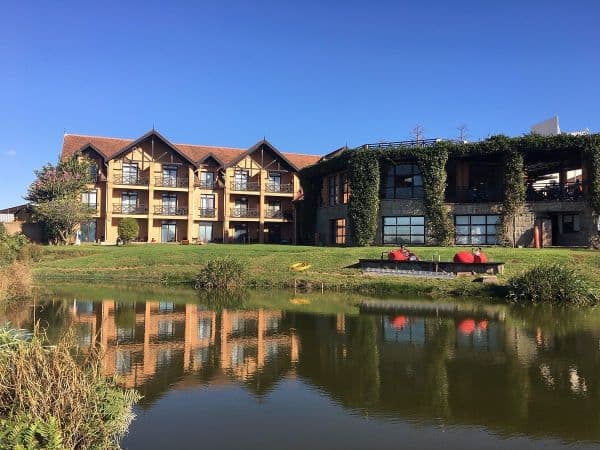Madagascar has witnessed remarkable progress in sustainable development, exemplified by noteworthy projects such as the U.S. Embassy in Antananarivo achieving silver-level Leadership in Energy and Environmental Design (LEED) certification.
This achievement establishes a precedent for eco-friendly building practices in the country, aligning with LEED’s principles of environmental responsibility, lower operating costs, and increased asset value.

Similarly, the Tamboho Boutik Hotel, located in Antananarivo, has become the first tourism establishment in Madagascar to receive the Green Key, demonstrating a commitment to sustainability and environmental conservation. Despite the challenges posed by the pandemic, the hotel’s management continued their pursuit of the Green Key, showcasing dedication to both the local community and the environment.
The Tamboho Boutik Hotel has implemented several noteworthy initiatives, emphasizing its dedication to sustainability. The “A brunch @ Tamboho = A tree planted with Bondy” campaign is a commendable effort, where the hotel plants one tree with the organization Bondy for each brunch sold. This initiative has resulted in the planting of 1,250 trees, with Bondy working closely with landowners to ensure the ongoing care and benefit from these trees.
Another significant initiative is the hotel’s collaboration with the “Fanavotana” project, involving women who collect selected materials from the hotel for recycling. The repurposing of materials, including glass, plastic, metal, and paper, not only contributes to waste reduction but also supports economic activities, such as the creation of jewelry sold at the hotel’s reception.
Furthermore, the hotel’s decision to replace plastic water bottles with reusable glass bottles demonstrates a commitment to reducing plastic waste. By offering free filtered water to guests in guest rooms and the restaurant, the hotel has successfully avoided the use of 37,560 plastic bottles in the past year, contributing to a cleaner environment.
The Tamboho Boutik Hotel’s support for the “Diary Nofy” project by “Teach for Madagascar” further illustrates its dedication to community development. Through a story-writing contest for children, the hotel generated earnings by publishing the top five stories in a book, which was then sold at the hotel’s reception. The proceeds were utilized to produce more books, distributed to public schools nationwide by Teach for Madagascar volunteers. Additionally, the hotel organized reading sessions in its garden for children from disadvantaged neighborhoods, promoting literacy and community engagement.
In summary, these green development projects in Madagascar, such as the LEED-certified U.S. Embassy and the eco-friendly initiatives of the Tamboho Boutik Hotel, showcase the positive impact that sustainable practices can have on both the environment and local communities. These efforts not only contribute to the global push for environmental conservation but also set an inspiring example for future green development projects in the region.
Overall, implementing green building and construction practices can result in significant cost savings by reducing maintenance and repair costs, lowering energy consumption and costs, and reducing water usage and costs. These savings can add up over time, making green buildings a financially smart choice for builders, property owners, and occupants alike.
Green building practices also emphasize reducing energy waste through sustainable building design and construction. For example, green buildings often incorporate air sealing and insulation to reduce heating and cooling losses. They also use energy-efficient windows and doors to reduce heat transfer and improve comfort levels. By reducing energy waste, green buildings can reduce energy consumption and costs over time.
Source : African Property Magazine – Joycelyn Marigold






